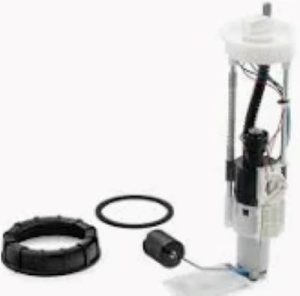The specifications of fuel pump filters can vary, as they need to be sized based on flow rate, filtration efficiency, and other parameters of the engine's specific fuel system. The primary consideration for filter sizing is flow rate: the amount of fuel pumped by the pump (typically measured in liters per hour (LPH)) must not be restricted by the fitter. As an example, while performance engines might demand filters with flow rates of 300 LPH or more, everyday passenger cars generally require filters supporting only 100 to 200 LPH. An undersized filter can choke flow and cause starvation, not an optimal setup for the engine.
Another important consideration is filtration efficiency, or how effective the filter is at capturing contaminants. Filters usually use a micron rating to specify the size of particles they can trap, typically somewhere between 10 and 100 microns. A 10 micron filter is a finer filter option suitable for high-performance engines that require cleaner fuel. Conversely, a typical 30 micron filter will work just fine for everyday drivers, as it strikes an effective balance by filtering while maintaining near zero restriction to ensure efficiency and life in stock fuel systems.

Manufacturers also consider how well it will work with the pressure and rely of the fuel pump. Unlike a filter that's normal is to be used with a high-pressure fuel pump—one that's pumping 80 psi or more—this type of a filter must be constructed in a way that it won't collapse under constant pressure. After all, companies like Bosch and ACDelco get them to be model-specific filters —meaning each type of filter is designed for the pressure specifications of a vehicle, and thus each filter is OEM safety and performance matched.
In race, car use, things get even more critical due to conditions of operation that require large amounts of clean fuel at relatively high pressures. These vehicles tend to have a filter rated at over 300 LPH with a micron rating as low as 5 to keep contaminants from reaching the fuel injectors and protect other critical components.
Jason Fenske, automotive expert and host of Engineering Explained, describes fuel filters as appearing to be simple and straightforward devices, but that size is crucial to making sure a car's fuel system is healthy. CLEAN, EFFICIENT Fuel PumpUninterrupted performance requires regular checks, and filter selection is key in preventing performance degradation and prolonging engine life.